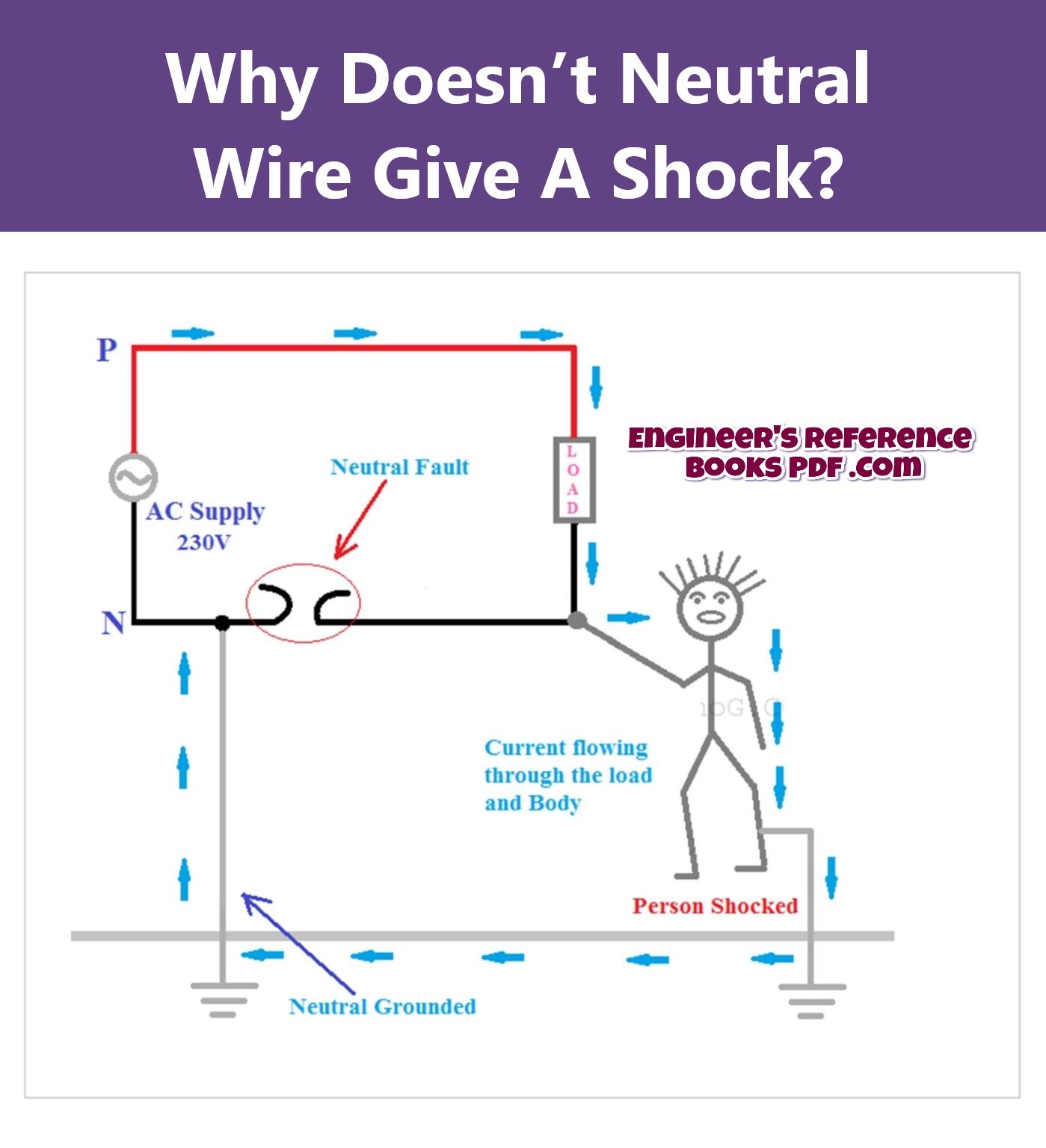
Why Doesn’t Neutral Wire Give A Shock?
The neutral wire is the wire that carries current back to the source after passing through a load (such as a light bulb or appliance).
The neutral wire is usually connected to the ground on the motherboard, meaning it has the same potential as the ground.
Therefore, under normal conditions, the neutral wire does not cause electric shock because there is no potential difference between the wire and the body.
However, there are situations where the neutral wire can become dangerous and cause electric shock.
For example, if the neutral wire is damaged or loose, this can result in an open circuit and a voltage increase in the neutral wire. This can happen in the event of a short circuit or a wiring error.
Another example is reversing the order of the hot and neutral wires or combining them, which can also cause the neutral wire to overheat. This can happen if there is a wiring error or a broken switch.
Therefore, always be careful when working with electrical wires and circuits, and never touch wires unless you are sure they are safe.
You should also use a voltage tester or multimeter to check the wires before touching them and turn off the power to the main panel before performing any electrical work.
You should also wear rubber gloves and shoes to insulate yourself from the ground.
